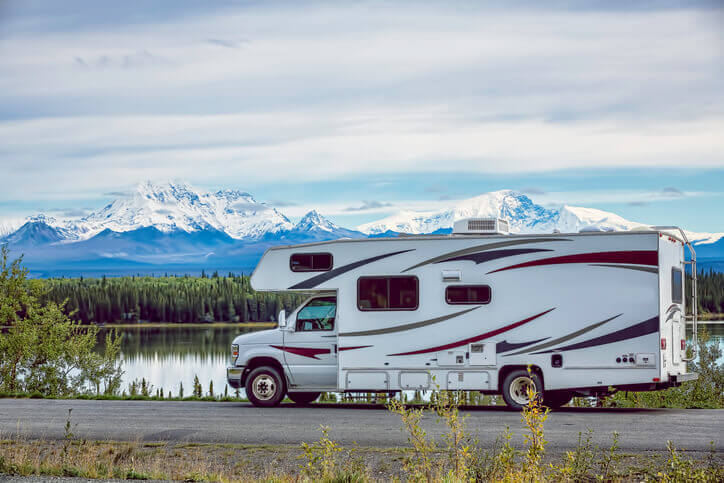How To Charge RV Batteries
Contents
Imagine a hot summer day when all of a sudden, your RV battery dies. Knowing the facts about charging your RV battery can save plenty of frustration.
You may be wondering, “how long do RV batteries last?” We’ll help you ensure that your RV battery has a full charge with proper maintenance. Regular battery charging promotes optimal functioning and long battery life.

Types of RV Batteries
Your RV’s make and model determines your RV battery and the fastest way to charge your RV battery. The three types of RV batteries include:
- Lead-Acid RV Batteries: Rely on maintaining steady distilled water levels. Though, this process can be tedious. A disadvantage is the higher chance of leaks in lead-acid batteries.
- Lithium RV Batteries: Can charge faster than other batteries. The battery percentage doesn’t affect performance.
- AGM Batteries: Standing for Absorbent Glass Mat. Sealed to prevent leaks and provides convenience in the lack of maintenance.
How To Charge Your RV Battery
The fastest way to charge RV batteries is through a power converter plugged into a 120V outlet. Even if your RV features 6V batteries, they hook together for a total of 12 volts.
With deep cycle batteries, it is best to trickle-charge your RV battery while in storage during winter. Remove the battery from your RV, fully charge it, then store it in an insulated area hooked up to a battery maintainer to keep it charged.
Although lithium batteries cannot withstand freezing temperatures, they are the most popular battery choice. You can bulk-charge lithium batteries up to 100% and use them within a few hours.
Different Methods of Charging RV Batteries
Wondering how to charge RV batteries? Depending on your RV rig and power source, there are different methods, including:
1. Shore Power Combined with a Converter
A converter is a middleman that bridges the conversion from alternating current (AC) to direct current (DC) from the shore power connection.
2. Camping Generators
Generators are best for those who want to avoid crowds and proximity. Generators require an adequate amount of gasoline or propane as a fuel source, and they can be noisy.
3. Solar Power
A free resource, solar power is the most cost-effective solution. Most RVs do not have a solar-powered setup, so this method requires higher initial costs for solar panels and wiring.
4. RV Vehicle Engine
Many Class A, B, and C RVs allow you to charge the battery while the engine is running. A moving RV serves a dual purpose as a generator!
5. Tow Vehicle 12V Feed
Travel trailers and RVs with fifth wheels have wiring between the main vehicle and the tow vehicle. You can wire this to send 12V power from the tow vehicle’s alternator to the RV battery.
What Happens If You Undercharge or Overcharge Your Batteries?
The RV battery reflects your RV’s performance and proper functioning. Interrupted charging may permanently damage the battery’s internal system.
Undercharging Your RV Battery
Repetitive undercharging can lead to the breakdown of the RV battery. As a result, sulfate accumulates and leads to corrosion.
Overcharging Your RV Battery
Overcharging the RV battery causes water loss that contributes to eventual RV failure.
RV Batteries Near You
For exclusive updates on used RV sales and services in Seattle, WA, contact Kirkland RV Sales today!

